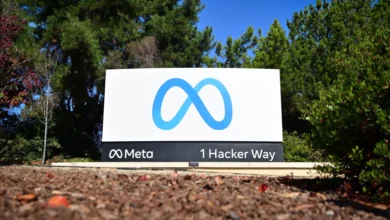When American journalist James Buck was arrested in April 2008 while covering the Mahalla labor protest in the Delta of Egypt, he sent a tweet out to his followers that read, “arrested”.
The tweet prompted the immediate response of the US consulate, and secured his release in less than 24 hours. The incident is an historic part of the archives of the social media era, which has integrated activism into the digital world and is strategically used by politically engaged citizens.
But as shown by staunch security responses to digital activism, the cyber world is not necessarily off the radar.
“The internet realm is not as open as it seems, this is the calm that precedes the storm,” said Ramy al-Sweissy, a human rights activist and a member of the 6 April protest movement, which has itself started a Facebook group that called for civil disobedience, back in 2008.
“They are now gathering data about activists in preparation for a fatal blow,” said al-Sweissy, who was detained in March 2009 for 24 hours. While in confinement, the activist was questioned about his political activities and forced to compromise the password to his Facebook account.
Al-Sweissy believes that security is learning the keys to new technology quickly.
“The new media had motivated a segment of Egyptian youth to get active and hit the streets protesting for their social, political and economic rights,” said Karim Abdel Radi, a researcher from the Arabic Network for Human Rights Information (ANHRI). “Security can attack any social media accounts just like any hacker can–sending patches is so far the most common technique,” he added. A patch is software hidden in an attachment that gives the sender data about the receiver if the file is opened.
“New internet tools such as Twitter, Facebook and Delicious, in addition to RSS feeds have speeded up the transfer of information to the benefit of activists–security however is learning about all these new channels,” added Abdel Radi.
Only this week, security managed to trace a hacker accessing the news website al-Youm al-Sabea through his IP address. Tarek Ahmed was arrested and detained for four days pending investigations.
In addition to security attempts to scrutinize digital activism, pro-regime internet users have also launched counter opposition online campaigns, using mostly Facebook.
Supporters of the president’s son, Gamal Mubarak, have joined the Facebook race with countless groups, some promoting him for presidency in the 2011 elections, despite widespread opposition to his grooming by his 82-year old father. This week, one of those groups was hacked and a message was placed on his profile picture that read, “We don’t want you or your father.”
Some believe pro-Mubarak groups to have been stirred by opposition groups in support of would-be presidential candidate Mohamed ElBaradei, former head of the International Atomic Energy Agency. At least two groups have been formed, with the membership of one reaching a quarter of a million.
The connections between political activism and the internet are strengthening, and while it is widely considered a positive move for political engagement, it raises questions in terms of security responses.




